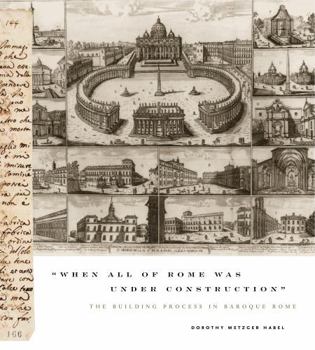"When All of Rome Was Under Construction": The Building Process in Baroque Rome
In "When All of Rome Was Under Construction," architectural historian Dorothy Metzger Habel considers the politics and processes involved in building the city of Rome during the baroque period. Like many historians of the period, Habel previously focused on the grand schemes of patronage; now, however, she reconstructs the role of the "public voice" in the creation of the city. She presents the case that Rome's built environment did not merely reflect the vision of patrons and architects who simply imposed buildings and spaces upon the city's populace. Rather, through careful examination of a tremendous range of archival material--from depositions and budgets to memoranda and the minutes of confraternity meetings--Habel foregrounds what she describes as "the incubation of architecture" in the context of such building projects as additions to the Palazzo Doria-Pamphili and S. Carlo ai Catinari as well as the construction of the Piazza Colonna. She considers the financing of building and the availability of building materials and labor, and she offers a fresh investigation of the writings of Lorenzo Pizzatti, who called attention to "the social implications" of building in the city. Taken as a whole, Habel's examination of these voices and buildings offers the reader a deeper and more nuanced understanding of the shape and the will of the public in mid-seventeenth-century Rome.





